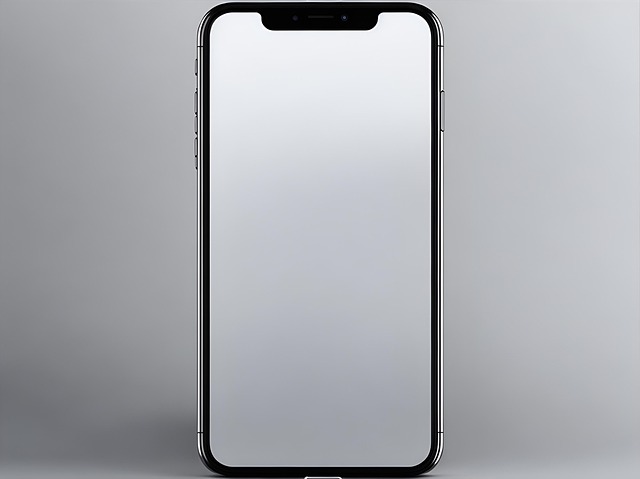Robocalls are a significant issue in South Carolina, prompting the state's Attorney General offices to enforce Do Not Call laws. Residents can protect themselves by registering on the state's list and seeking specialized legal help from Do Not Call Lawyers SC or Do not Call Attorneys SC. These professionals use consumer protection laws like the TCPA to restrict automated calls, file lawsuits for damages, and negotiate opt-out agreements. Persistent robocalls require immediate action; documenting incidents, filing complaints with regulatory bodies, and seeking injunctions are key strategies. Open communication between lawyers and clients is crucial to build strong cases against robocallers.
In Spartanburg, South Carolina, the rise of robocalls has become a significant nuisance, leading many residents to seek legal recourse. This article explores the strategic tactics employed by attorneys specializing in representing clients against robocallers. We delve into the legal implications of robocalls under South Carolina’s Do Not Call laws and highlight common strategies used by lawyers to protect their clients’ rights. Understanding these methods is crucial for both consumers seeking relief and Do Not Call lawyer SCs looking to enforce these protections effectively.
Understanding Robocalls and Their Legal Implications in South Carolina
Robocalls, automated telephone calls made en masse using dialing software, have become a prevalent and often intrusive form of communication in South Carolina, as across the nation. While many robocalls promote legitimate services or products, a significant portion falls into the category of unwanted or fraudulent calls, particularly those targeting consumers with promises of prizes, financial opportunities, or government benefits. In Spartanburg and throughout South Carolina, these calls are regulated under state laws designed to protect residents from deceptive practices and intrusions on privacy.
South Carolina’s Do Not Call registry plays a crucial role in mitigating the impact of robocalls, allowing individuals to opt-out of receiving marketing calls at their discretion. Attorney general offices and regulatory bodies actively enforce these laws, holding responsible parties accountable for violating consumer rights. For clients facing relentless robocalls, engaging a “Do not call lawyer SC,” or an attorney specializing in such matters within South Carolina, can provide much-needed recourse. These legal professionals can guide clients through the complexities of filing complaints, seeking injunctions against persistent violators, and pursuing damages under relevant statutes, including those related to privacy protection and consumer rights.
Common Strategies Used by Attorneys Against Robocallers
When representing clients affected by unwanted robocalls in Spartanburg, attorneys employ various legal strategies to protect their rights and achieve justice. One common approach is to leverage consumer protection laws, such as the Telemarketing and Consumer Fraud and Abuse Prevention Act (TCPA). This federal legislation restricts automated telemarketing calls and provides a robust legal framework for holding robocallers accountable. Attorneys may file lawsuits against these entities on behalf of their clients, seeking damages for each violation.
Additionally, legal professionals often focus on establishing a clear chain of causation between the robocalls and any resulting harm or financial loss. They might gather evidence, including call records, to demonstrate the frequency, nature, and impact of the calls. This step is crucial in building a solid case. Attorneys may also negotiate with robocaller companies to secure opt-out agreements for their clients, ensuring future peace from unwanted calls, and they could collaborate with other legal peers to create precedent and strengthen their arguments in court.
Navigating Do Not Call Laws in South Carolina: Rights of Consumers
In Spartanburg or anywhere in South Carolina, consumers have rights when it comes to unwanted robocalls. The state has specific Do Not Call laws in place to protect residents from intrusive telemarketing practices. These laws grant consumers the right to register their phone numbers on the “Do Not Call” list, effectively blocking most automated calls. However, there are exceptions; for instance, calls from non-profit organizations or certain government agencies might still reach your line.
If you’re facing incessant robocalls despite being protected under these laws, a do not call lawyer SC could offer guidance and legal recourse. Do not call attorneys SC specialize in advocating for consumers’ rights and can assist with crafting effective strategies to halt unwanted calls. Whether through negotiations with call centers or legal action against persistent violators, these professionals ensure that your rights as a South Carolina consumer are respected and upheld by do not call law firms South Carolina.
Effective Legal Actions for Clients Against Unwanted Robocalls
Clients in Spartanburg facing relentless robocalls have several effective legal avenues to explore. One crucial strategy is to document every incident, including the caller’s number and a record of the messages received. This evidence can be instrumental in identifying the source and establishing a pattern of unwanted calls.
Engaging the services of a specialized Do Not Call lawyer in South Carolina is highly recommended. These attorneys have the expertise to navigate the complex legal landscape surrounding telemarketing laws. They can file formal complaints with relevant authorities, such as the Federal Trade Commission (FTC) or the South Carolina Public Service Commission, on behalf of their clients. Additionally, they might seek legal remedies like seeking injunctions to stop the calls, damages for emotional distress, and even class-action lawsuits if numerous individuals have been affected. Remember, a Do Not Call attorney in SC can provide tailored guidance and fight for your rights against robocallers.
The Role of Attorney-Client Communication in Robocall Litigation
In Spartanburg, as in many parts of the country, the surge in robocalls has led to an increase in legal action against unwanted telemarketing calls. Attorney-client communication plays a pivotal role in such litigation. When representing clients affected by robocalls, attorneys must establish clear and open lines of communication to gather essential details about the intrusive calls, including dates, times, and specific content. This information is crucial for building a solid legal case against robocallers, who often use automated systems that leave little trace of their activities.
Effective communication also involves keeping clients informed throughout the legal process. Many victims of robocalls may feel violated or frustrated, so maintaining transparency and providing regular updates can help build trust. Lawyers representing these clients in Spartanburg should ensure their communications are clear, concise, and tailored to the client’s understanding, making them feel heard and empowering them with knowledge about their legal rights and options, particularly when considering whether to engage a do not call lawyer SC or do not call attorney SC. This approach can significantly contribute to the success of litigation against robocallers.






